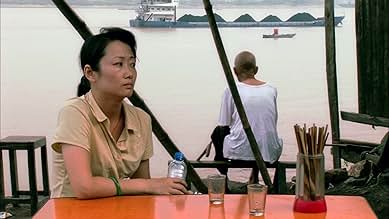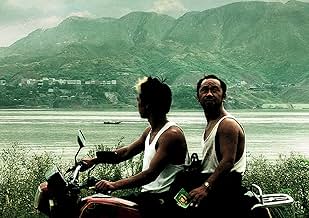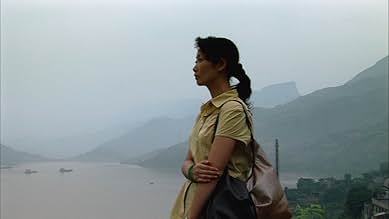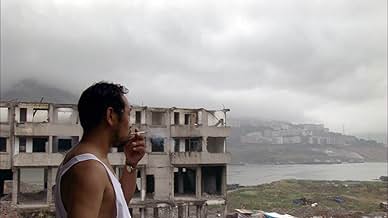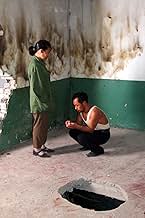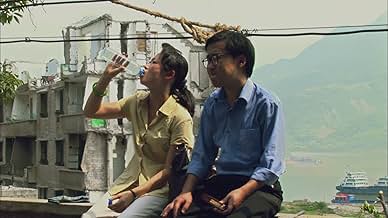Ancient towns have been submerged along the Yangtse River in China as part of the Three Gorges Dam project. Jia Zhang-Ke has created a contemplative and compassionate human drama set in the region, depicting two separate protagonists attempting to locate missing ones who lived in areas now underwater.
I'm not a great fan of high definition digital video photography, but this sublime film takes advantage of the benefits of the technology while avoiding most of the pitfalls. I was seriously sleep-deprived while watching the film and never got close to nodding off, even though there are very long takes where little seems to happen. Yet in takes, there are many passing details, the beautiful movements of camera taking in rich and authentic details of people, situations, implements, household paraphernalia and gorgeous sweeping vistas. The latter appeared to be enhanced using filters, which seemed to compensate for the loss of aesthetics that comes from not shooting on 35mm film. This film was visually beautiful, though that really only served what was an extremely well-made film.
As a lover of world cinema, I found the attention to detail fascinating. The director seemed to be sharing the idiosyncrasies of the local culture, customs and demeanour with a real sense of compassion and humanitarianism. I found it poetic, uplifting and moving. Paraphrasing Melbourne International Film Festival executive director Richard Moore's in introduction by quoting the director (who was in attendance as a guest of the festival): "I originally wanted to make films that would change the world... I now realise this is not possible, and I just wish to make films that make people sigh." It worked on me.



